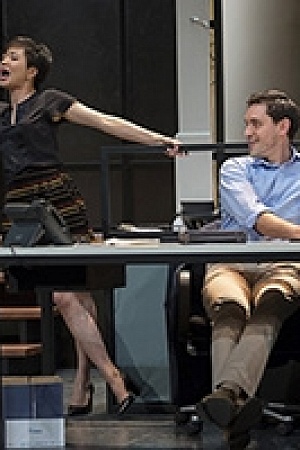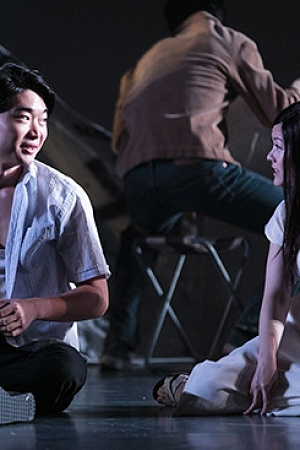Cloud Nine (Sydney Theatre Company) ★★★★
Clive, a splendid chappie, has taken up the white man’s burden in darkest Africa and is attempting to bring some British order to the lesser breeds without the law, even though the ungrateful blighters are getting a bit restless. He’s accompanied by that jolly good stick of a wife of his, Betty, their little nippers, Edward and Victoria, his mother-in-law, Maud, a bit of a dragon if you ask me but a good person to have in a tight corner, and the children’s governess, a tasty bit of crumpet called Ellen. But hold on a minute, folks. On closer inspection there appears to be something decidedly rum about the whole affair. If Betty is a good stick, she seems to be a very long one with rather large hands and feet, while their servant, Joshua, is decidedly pale for a native and carries on like a sinister Jeeves, and one might call Edward a bit of a nancy boy except for the fact that he is actually a she. Yes, Caryl Churchill’s fantasia on gender, race, sexuality, and power, Cloud Nine, has returned to the Australian stage.
Continue reading for only $10 per month. Subscribe and gain full access to Australian Book Review. Already a subscriber? Sign in. If you need assistance, feel free to contact us.











Leave a comment
If you are an ABR subscriber, you will need to sign in to post a comment.
If you have forgotten your sign in details, or if you receive an error message when trying to submit your comment, please email your comment (and the name of the article to which it relates) to ABR Comments. We will review your comment and, subject to approval, we will post it under your name.
Please note that all comments must be approved by ABR and comply with our Terms & Conditions.